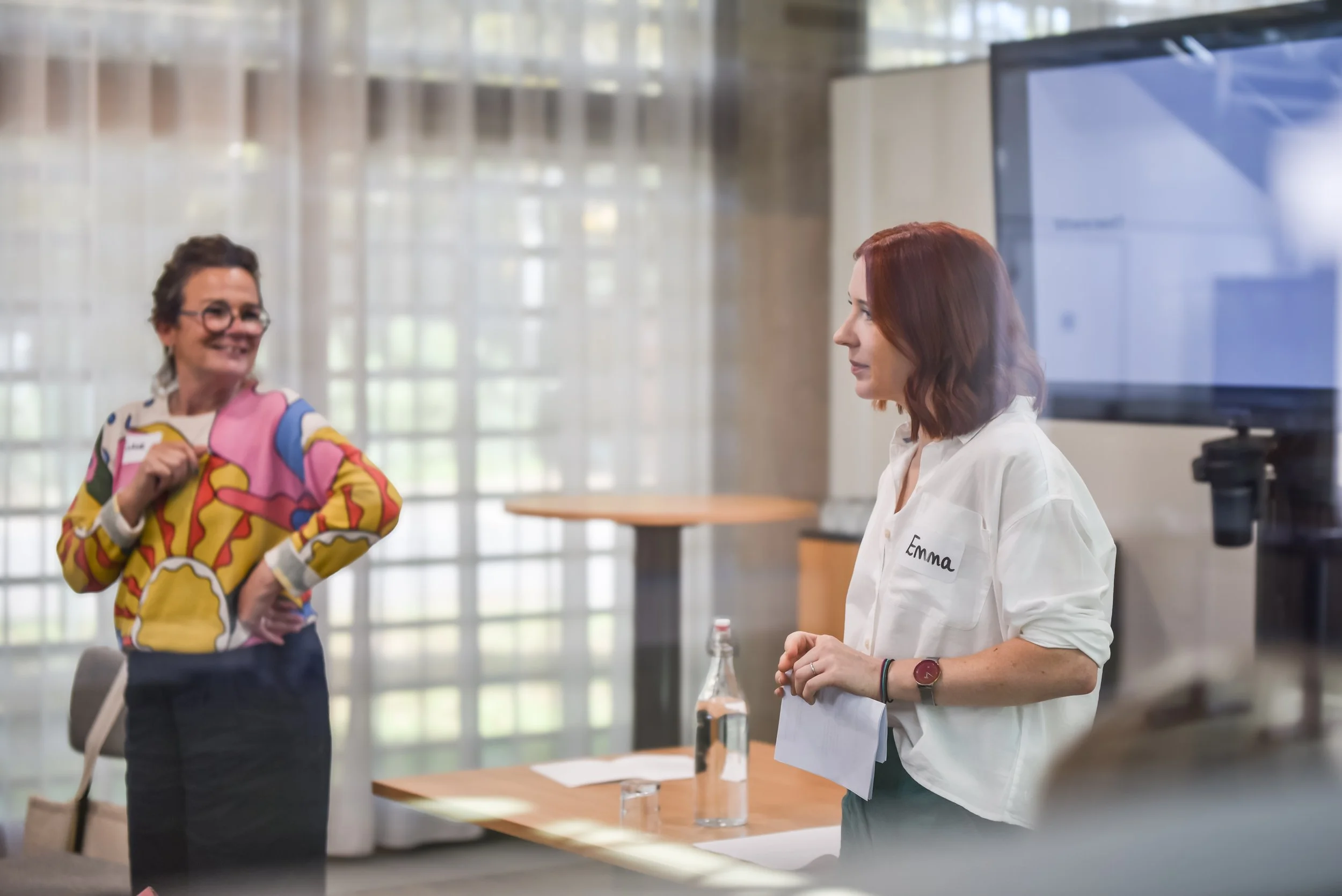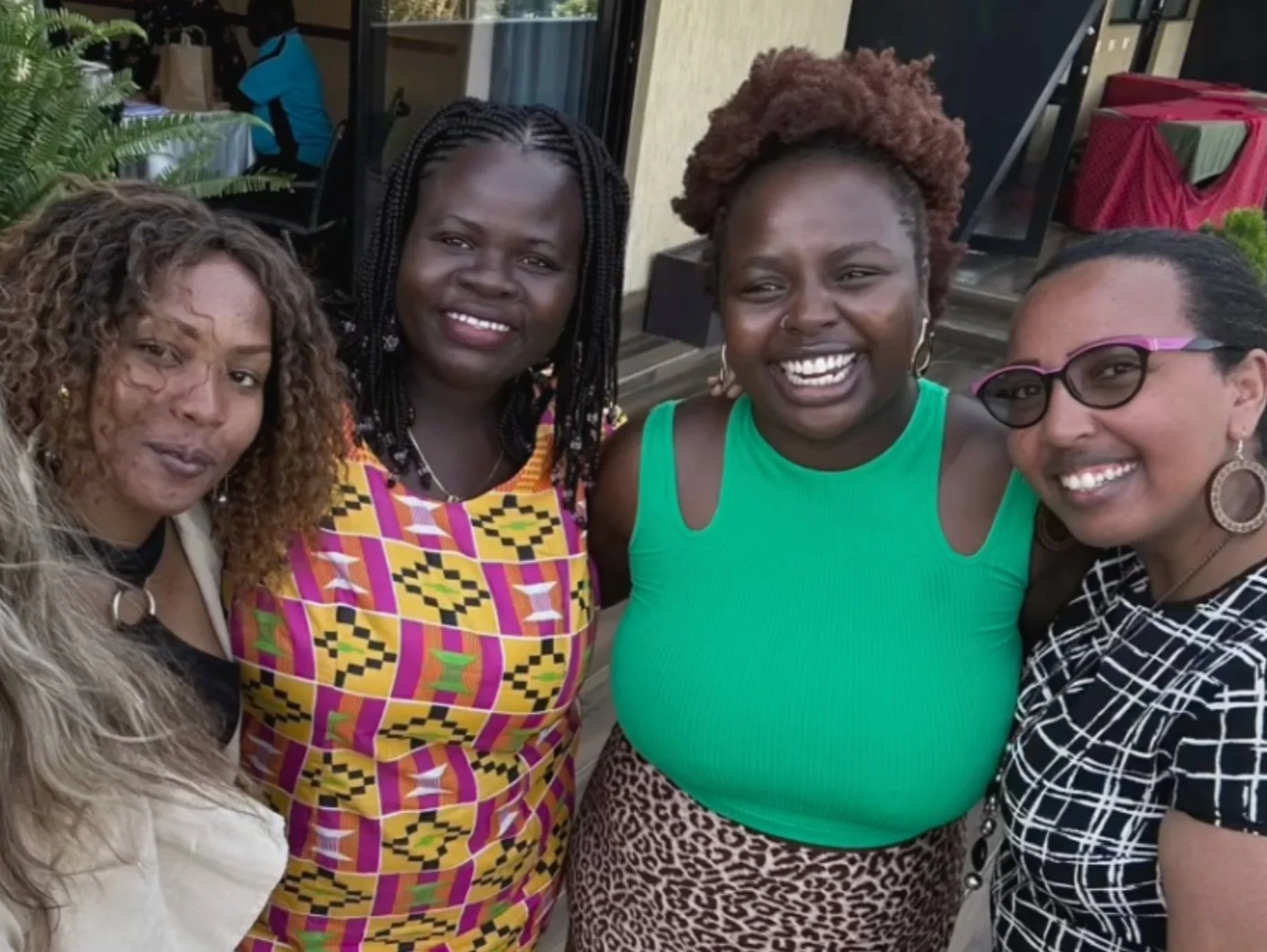Portfolio
Imroc has worked across the globe leading best practice for providing better services for the people working in and being supported by them through our coproduced methodology. We have shared a selection of our projects and work in the case studies below, take a look through our Imroc journey.
Fit For The Future 10 Year Health Plan for England
This plain-English guide breaks down the Labour government’s Fit for the Future: 10-Year Health Plan for England, highlighting what it means for mental health. The plan outlines a shift from hospitals to communities, treatment to prevention, and analogue to digital care. Key commitments include expanding mental health support in schools, integrating services into neighbourhood hubs, and enabling self-referral through the NHS App. Imroc’s explainer makes complex policy accessible for people who use, work in, or care about mental health services.
Read more about what’s exciting, what’s missing, and how Imroc sees the future of mental health support in England.
Empowered Through Autism Peer Support: A Trainee’s Journey
This is the story of an Autism Peer Support trainee from Imroc’s Neurodiversity Programme, who transformed their experience into advocacy. What started as a training requirement at Alder Hey Children’s Hospital became a life-changing journey—gaining skills to support others, advocate for themselves, and even share their insights with the Children’s Commissioner for England.
Recovery Colleges Learning Set 2025
Join Imroc's Recovery Colleges Learning Set 2025 to connect, collaborate, and innovate with Recovery Colleges across the UK. Explore best practices, coproduction, and shared learning opportunities.
Imroc’s response to UK government's mental health bill announcement
The new Mental Health Bill aims to enhance service user autonomy, reduce restrictive practices, ensure person-centred care, and allow individuals to choose their own advocates. Key changes include ending the use of police cells as ‘places of safety’ and limiting detention for those with learning disabilities and autism. Effective implementation will depend on significant investment in services and community support.
From Recovery to Advocacy: “My Journey with Imroc”
In this personal reflection, I recount my path from crisis patient to Board Trustee at Imroc, an organisation dedicated to transforming lives through peer support and lived experience. From my early days of recovery at the CNWL Brent Recovery College to the recent internal launch event, my story is one of growth, resilience, and discovery. Imroc's values—Belonging, Openness, Quality, and Equity—are at the core of everything we do, fostering a community that empowers individuals to live well. Join me in exploring how lived experience can turn recovery into discovery, and why Imroc’s pioneering work in peer support is so vital in today’s complex world.
Celebrating Global Peer Support Day
Today, on Global Peer Support Day, we at Imroc take a moment to reflect on the incredible impact that peer support workers have had on countless lives. As an organization dedicated to promoting recovery and empowering individuals through lived experience, we are proud to highlight the invaluable role peer support plays in mental health care.
The Cardiff and Vale Live Well Project's Journey with Imroc
Imroc has been working across healthcare services, social care and voluntary services since 2007. We work in partnership with communities to develop systems, services and cultures that support recovery and wellbeing for all. Co-Production is core to everything we do. Through Co-Production we enable people who use services, work in services and live in communities to unlock and pool the strengths and talents they take for granted and create together new ways to make use of them.
Research
Imroc has a long history of undertaking Recovery Focused research and evaluation, reviewing evidence and always basing our approach, practice, values and developments on relevant evidence. We take an inclusive approach in our definition of evidence. This means that we value evidence generated through the whole spectrum of research methodologies so long as studies are well explained, justified and reported (so that we can assess quality). Also, since we are frequently working in innovative ways that are in early stages of research, we take account of practice based evidence: what people/services tell us about what works for them.
The Teams who deliver our services
Imroc is driven by a collective of committed individuals who embody our values of belonging, openness, quality, and equity. These values emphasise strong and trusting relationships, a willingness to learn and adapt, maintaining high standards of integrity, and celebrating and seeking diversity to co-produce systems and products that reflect the right voices to influence change. Imroc is made up of several specialised teams, each bringing a rich mix of lived and learnt experiences relevant to their portfolio of work.
Imroc Journey from 2008-2024
Imroc was founded in 2008 by a group of individuals with lived, life, and learned experiences. The initiative aimed to address the challenges faced by mental health organisations in embedding recovery-focused practices, conversations, and values into their services.
Peer Visioning Event 2030
On April 25th, 2024, we hosted our highly anticipated conference - it was an exhilarating experience and the energy in the room was palpable. Collaboratively, we engaged in inspiring and ground-breaking discussions, marking a thrilling step forward in shaping a brighter future for peer support.
Recovery Colleges
Imroc developed the Recovery College Model, initially implemented in three demonstration sites: South West London and St George’s Mental Health NHS Trust, Central and North West London NHS Foundation Trust, and Nottinghamshire Healthcare NHS Foundation Trust. This model's implementation was detailed in Imroc’s first briefing paper. Today, there are over 220 Recovery Colleges across the UK and in 26 countries worldwide.
The Imroc Methodology
The Imroc initiative was developed to address the challenges faced by mental health organisations in embedding recovery-focused practices into their services. Recovery is about people with mental health problems living meaningful lives, and the principles of recovery have gained international recognition. Despite this, there were no established methodologies to shift organisational cultures towards recovery-oriented practices.
Imroc’s Thought Leadership in Recovery-Focused Mental Health
Imroc has been instrumental in defining and developing recovery-focused culture and practice at personal, team, organisational, and systemic levels, both nationally and internationally. Our extensive work and partnerships have solidified our reputation as thought leaders in the mental health sector.
Imroc’s Global Impact on Recovery-Focused Mental Health Services
Discover how Imroc's global impact is transforming recovery-focused mental health services. Learn about our innovative approaches, peer support initiatives, and international collaborations driving mental health system improvements. Explore case studies, insights, and our mission to inspire, empower, and transform mental health care worldwide.
Mental Health Peer Training Team at Imroc
Peer Support Mental Health Training Team. Imroc has been part of the peer training landscape since 2009, but this team took shape when Imroc began undertaking a significant Health Education England/NHS England-funded training programme in 2021. The team aims to exemplify the values of peer support throughout their work and offer safe and accessible training that gives Peer Support Worker’s the best possible launchpad for their careers.
Imroc’s Strategic Response to Acute Care Service Challenges and Difficulties
Imroc has previously commented on the media exposure of appalling practice in inpatient units (Response to Dispatches – Imroc – Implementing Recovery through Organisational Change); coverage that vindicated the personal reports and cries for help from people in those services, patients, their families and staff.
Developing Peer Support for the HOPE Project
The HOPE project is an international collaboration aimed at developing effective, rights-based interventions for homeless individuals experiencing distress in Ethiopia, Ghana, and Kenya. Imroc is a key partner in this initiative, leveraging its expertise in peer support training and co-production to ensure impactful outcomes.
Expanding Recovery-Focused Mental Health Services in Canada
Over the past nine years, Imroc’s work across North America has paved the way for the creation of Imroc Canada. This expansion began with the establishment of the first French-speaking Recovery College in Québec in 2019, known as the Centre d’apprentissage Santé et Rétablissement (CASR).
Imroc Peer Support Training in Malaysia
Imroc is collaborating with SAPOT, a Malaysian social enterprise that seeks to tackle mental health stigma through promoting recovery-focused values and elevating the voice of lived experience.
Glossary
-
Learning spaces that offer co-produced workshops and courses which support and enable people to take control of the condition they live with and to live the lives they want to lead. They are underpinned by key principles which bring together the wealth of available knowledge, skills, experiences and wisdom of those using services and those who support them, those delivering services and subject experts.
-
A structured process of support and learning within working environments that enables individuals to develop knowledge and competence, assume responsibility for their own practice, and enhance consumer protection and the quality of services. Imroc encourages peer-to-peer supervision where possible, rather than peers being supervised by a different professional group.
-
Recovery-focused care emphasises the individual's journey towards healing and well-being, prioritising personal strengths, goals, and empowerment. This approach supports the belief that recovery is possible and centers on the person’s aspirations. It involves collaborative, person-centred planning, where the individual takes an active role in their recovery process. Services and supports are tailored to promote autonomy, self-determination, and social inclusion. Recovery-focused care also integrates a holistic view, addressing not just symptoms but overall quality of life, including physical health, social connections, and meaningful activities. It aims to build a fulfilling, self-directed life beyond the limitations of mental health or substance use issues.
-
A principle of working together, treating people being supported by services, carers, and professionals as equal partners in the design, development, delivery, and evaluation of services. Co-Production emphasises the importance of harnessing the insights and expertise of those with lived experience to create more effective and responsive services.
-
A group of people who share a common interest, profession, or passion and come together to fulfil both individual and group goals. Communities of practice focus on sharing best practices, learning from one another, and collectively solving problems within a specific domain or field. At Imroc, our training teams come together regularly to learn, share, and continuously develop their awareness and knowledge and reflect on their experiences.
-
A space to come together on a regular basis to exchange learning, share ideas, develop our thinking further and hear about the latest research and evidence on Recovery Colleges. A combination of presentations, guest speakers and group discussions give members the opportunity to share experiences and innovations, learn from each other and develop practice.
-
A professional service provided by lived and learnt experience experts to offer advice, guidance, and actionable solutions to organisations or individuals. In the context of Imroc, consultancy focuses on facilitating organisational change, embedding recovery principles, and enhancing peer support within services. It involves assessing needs, developing strategic plans, offering tailored training, and supporting the implementation of practices that are inclusive, equitable, and rooted in the wisdom of lived experience.
-
Referring to fairness and justice in the way people are treated and served. In the context of mental health services, equitable practices ensure that every individual has access to the support, resources, and opportunities they need to achieve their best health outcomes, regardless of their background, circumstances, or challenges. This involves addressing disparities and removing barriers to inclusion and participation.
-
A supportive relationship between individuals who share a common experience, which can include recovering from being in services and rebuilding a life outside of services. Peer Support Workers use their own lived experience to offer empathy, understanding, and encouragement to others in their recovery journey. It is based on principles of mutuality, respect, and shared responsibility for well-being.




















